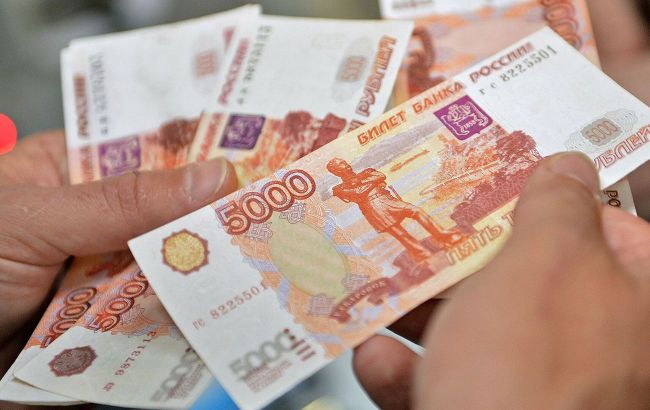Kremlin weighs major tax increase as Russia's budget gap explodes, Ukraine's intel says
 Photo: Russia forces banks to pay more, plans VAT increase (Sputnik)
Photo: Russia forces banks to pay more, plans VAT increase (Sputnik)
The Kremlin is weighing an increase in value-added tax to 22% despite earlier promises not to touch taxes. It has already submitted a bill to the State Duma for a one-time levy on banks, reports the Foreign Intelligence Service of Ukraine.
Tax pressure on businesses and the financial sector in Russia continues to grow. The main reasons are the protracted war against Ukraine and a rapidly widening budget deficit. In the first eight months of 2025, the shortfall reached 4.19 trillion rubles, nearly four times the target.
Although Russian leader Vladimir Putin publicly stated that there were no plans to increase taxes, the Kremlin is now discussing raising the VAT (Value-Added Tax) rate from 20% to 22%.
For the economy, this step looks unavoidable since the government is unwilling to cut either military spending or social programs.
VAT as a main revenue source
VAT remains the backbone of Russia's budget. In 2024, it generated nearly 37% of revenues, or 13.5 trillion rubles. The last adjustment came in 2019, when the rate went from 18% to 20%. Authorities are now compelled to act again after previous tax hikes failed to yield the desired results.
The deficit at the end of 2025 is projected between 5 and 8 trillion rubles. The official forecast for 2026, set at 2.2 trillion, already appears unrealistic.
Why tax measures are not saving the budget
The banking sector will be the first to feel the new pressure. A bill before the State Duma would introduce a one-time 10% tax on excess profits of credit institutions.
The model replicates the 2023 scheme, which saw a similar measure applied to large companies generate 315 billion rubles. This time, the government expects around 200 billion rubles from banks, an amount far too small to cover even a fraction of the record deficit.
These steps are not a development strategy but an attempt to plug holes in the budget. The excess profit tax in 2023 did not become a decisive tool, and the current measures will not bring systemic change. The prospect of a VAT increase underscores Russia's deepening financial crisis.
Russia's banking system is on the brink
In July, Ukrainian intelligence reported that leading Russian banks, including Sberbank (Russia's largest bank) and Vneshtorgbank (the second-largest state-owned bank after Sberbank), were preparing for a wave of loan defaults.
By late 2025 and early 2026, many Russian borrowers are expected to stop repaying their loans. The amount of overdue debt has already climbed to 1.5 trillion rubles, or about $19.2 billion — the highest level in six years.
Bloomberg has reported that experts see a collapse of Russia's banking system as achievable by April 2026 if the economy does not improve.
Recently, the Head of Sberbank, Russia's largest lender, Herman Gref, said the country's economy had effectively stalled in the second quarter of 2025. He cited a mix of geopolitical tensions, ruble volatility, and falling commodity prices, which together slowed business activity.

